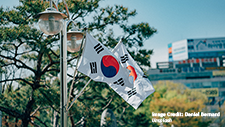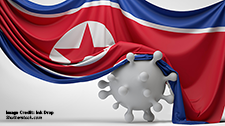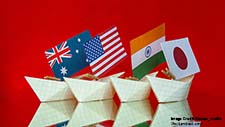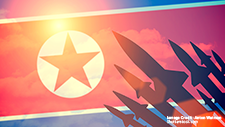Allies should find new policy on North Korea
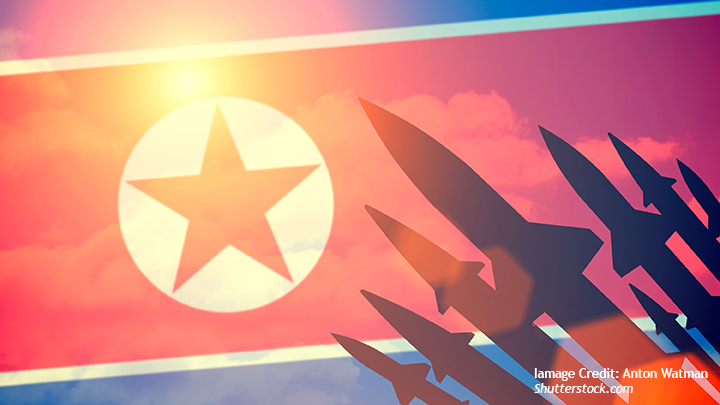
Mitch Shin
Since South Korean President Yoon Suk-yeol took office in May, North Korea has continuously tested its missiles, including the Hwasong-17 intercontinental ballistic missile (ICBM) and other advanced short-range ballistic missiles (SRBMs).
Unlike then President Moon Jae-in, Yoon’s predecessor who pursued a dovish approach to the North, despite its nuclear and missile threats, Yoon vowed to focus on strengthening the South Korea-U.S. military alliance and his country’s self-defense capabilities in a bid to deter the North’s nuclear and missile threats effectively.
However, he has not ruled out diplomacy with the North’s supreme leader, Kim Jong-un.
In August, Yoon publicly offered Pyongyang “economic packages” once it shows its “will” to denuclearize the country. Under the name, the “Audacious Initiative,” Yoon showed that his policy for North Korea as president is different from what he showed during his presidential campaign.
However, his official policy on North Korea was not audacious enough to convince Pyongyang to return to the negotiating table as it was just a soft version of “Denuclearization, Opening and 3000,” the failed plan proposed by former conservative President Lee Myung-bak a decade ago.
Denouncing Yoon’s “Audacious Initiative” and Yoon himself, Kim Yo-jong, the powerful sister of Kim Jong-un and the main voice on inter-Korean relations from the North, called it “a replica” of Lee’s plan.
Considering Kim Yo-jong’s belligerent remarks aimed directly at Yoon, the inter-Korean dialogue will likely remain stalled until the end of Yoon’s term. As Kim Jong-un also drew the line that his nuclear weapons are not negotiable anymore, no dialogue efforts with preconditions of the North stepping forward to denuclearize will work.
Although inter-Korean dialogue has been deadlocked in the wake of the failed Hanoi summit between then-U.S. President Donald Trump and Kim Jong-un in 2019, South Korea should actively come up with a new idea to persuade the U.S. to keep its eyes on North Korea. Without the U.S.’ full engagement in North Korea issues, no substantive progress can be made.
As both hawkish and dovish overtures on North Korea have failed in the past decade, some South Korean experts and politicians are again sounding the alarm, urging the government to develop its own nuclear weapons as a defensive means against the North’s nuclear attacks. They are also using the polls simply to ask the respondents whether or not they support the country’s nuclear armament amid the North’s nuclear and missile threats to back up their arguments.
Under the simple formula, “peace comes from strong power,” Seoul has been asked to strengthen its defense capabilities; nuclear armament has repeatedly been brought up when inter-Korean dialogue failed to deescalate the tensions on the Korean Peninsula. Yoon has already made clear that developing nuclear weapons or redeploying the U.S.’ tactical nuclear weapons in the South is off his table but more and more South Koreans will support this dangerous idea unless the North halts its missile tests.
In order to prevent a nuclear domino effect in the East Asia region, it is highly important for both Seoul and Washington to introduce a new approach that can create momentum to renew the stalled dialogue with North Korea. Along with this new approach, it is also important to ask the following question to the countries related to North Korea issues: will North Korea halt its missile tests once South Korea has acquired nuclear weapons?
Apparently there will be more damage than profit for South Korea if it develops nuclear weapons. Now, it is only dealing with the security dilemma on the Korean Peninsula caused by the North’s nuclear programs. But, once it develops nuclear weapons for the purpose of deterrence against the North’s provocations, the South will have no choice but to engage in various regional security dilemmas involving China, Russia and Japan. It is questionable whether this scenario is actually favorable for the national interests of South Korea.
North Korea will not halt its missile tests and will eventually conduct its seventh nuclear test in a bid to achieve the military modernization plan that was introduced during the Eighth Congress of the Workers’ Party of Korea (WPK) in January 2021. As a tit-for-tat measure, North Korea will keep launching ballistic missiles when the South Korea-U.S. joint military exercises take place in the region.
Thus, in order to construct permanent peace on the Korean Peninsula, South Korea and the U.S. should try to put themselves in the North’s shoes for devising the most effective “new” policy that can work. It does not mean that they should implement a policy favorable only to the North’s interests. However, as far as the American experts and politicians deem options such as the normalization of the relations, arms control negotiation, lifting economic sanctions and the model of the JCPOA with North Korea as “taboo,” South Korea and the U.S. will never be able to stabilize the region peacefully as the North will not respond to their old-school approaches.
If the South and the U.S. insist on the “CVID” of the Korean Peninsula initiative, the prices for the denuclearization of the Korean Peninsula will keep going up and it will eventually become “mission impossible” at some point. Then, who should be responsible for the unsolvable security dilemma on the Korean Peninsula?
While reaffirming their joint response to the North’s nuclear and missile threats, South Korea and the U.S. should ponder a new way that can bring countries in the region to tackle this issue altogether; the new way should be concrete and filled with diplomacy and dialogue, not forceful options such as maximum pressure.
This article was originally posted in The Korea Times, you can find the article here.
Related Publications
-
Understanding North Korea’s Resilience through Economy, Laws and Governance: a review of introductory sources and essential monographs
This article reviews contributions that may help researchers re-evaluate the question of the North Korea’s remarkable resilience in spite of its undeniable economic failure, a seemingly obscure legal system, and […]
-
Will Yoon’s Indo-Pacific Strategy Tackle the China Threat?
In late-December 2022, South Korea under the relatively new presidency of Yoon Suk-yeol effectively concluded its policy shift from “strategic ambiguity” by releasing the “Strategy for a Free, Peaceful, and […]
-
North Korea Likely to Lift Pandemic Border Restrictions in 2023
Abstract In his speech at the Workers’ Party at the end of December 2022, the North Korean leader Kim Jong Un stressed that 2023 is the third year of key […]
-
Seoul’s Geopolitical Code on Quad: Imperative or Elective?
Abstract: Under the new government helmed by President Yoon Suk-yeol, South Korea (ROK) has displayed a clear tilt toward and a more open embrace of the Indo- Pacific concept. Interestingly, […]
-
With New Law on Nuclear Forces Policy, North Korea Says Its Nuclear Status Is ‘Irreversible’
Introduction: A day before the 74th anniversary of the country’s founding, North Korea’s supreme leader Kim Jong Un publicly declared that his nuclear weapons are no longer a bargaining chip […]

